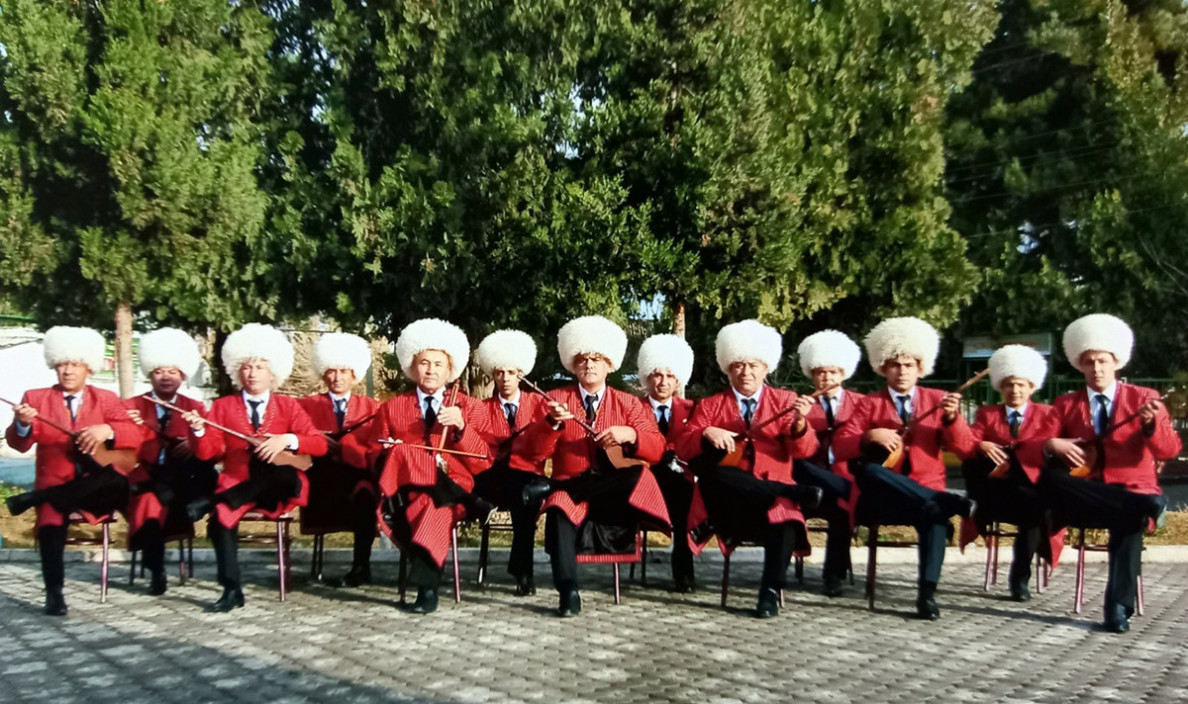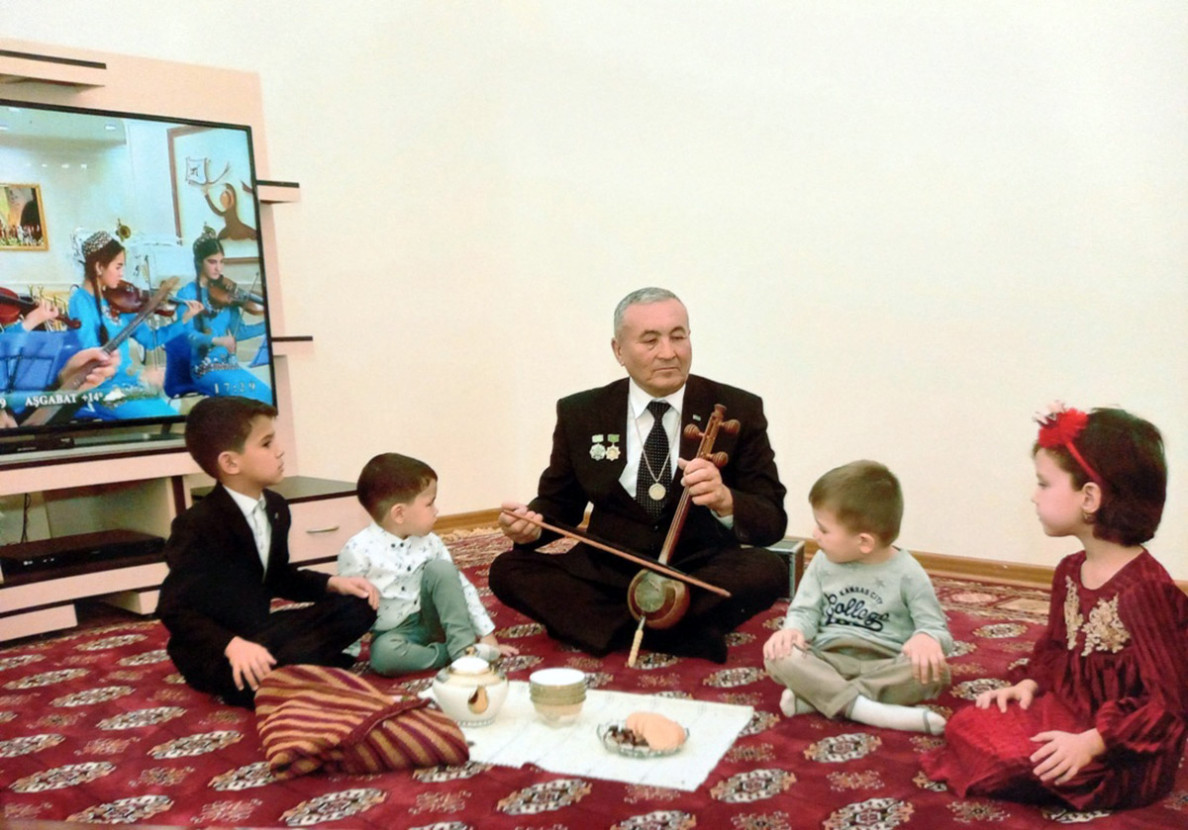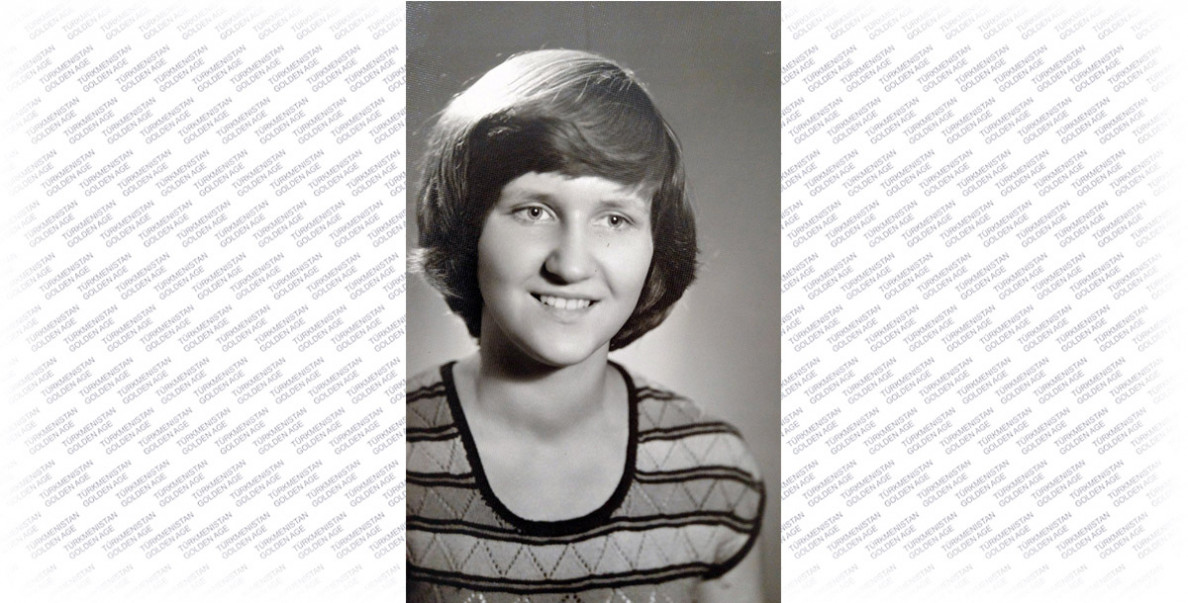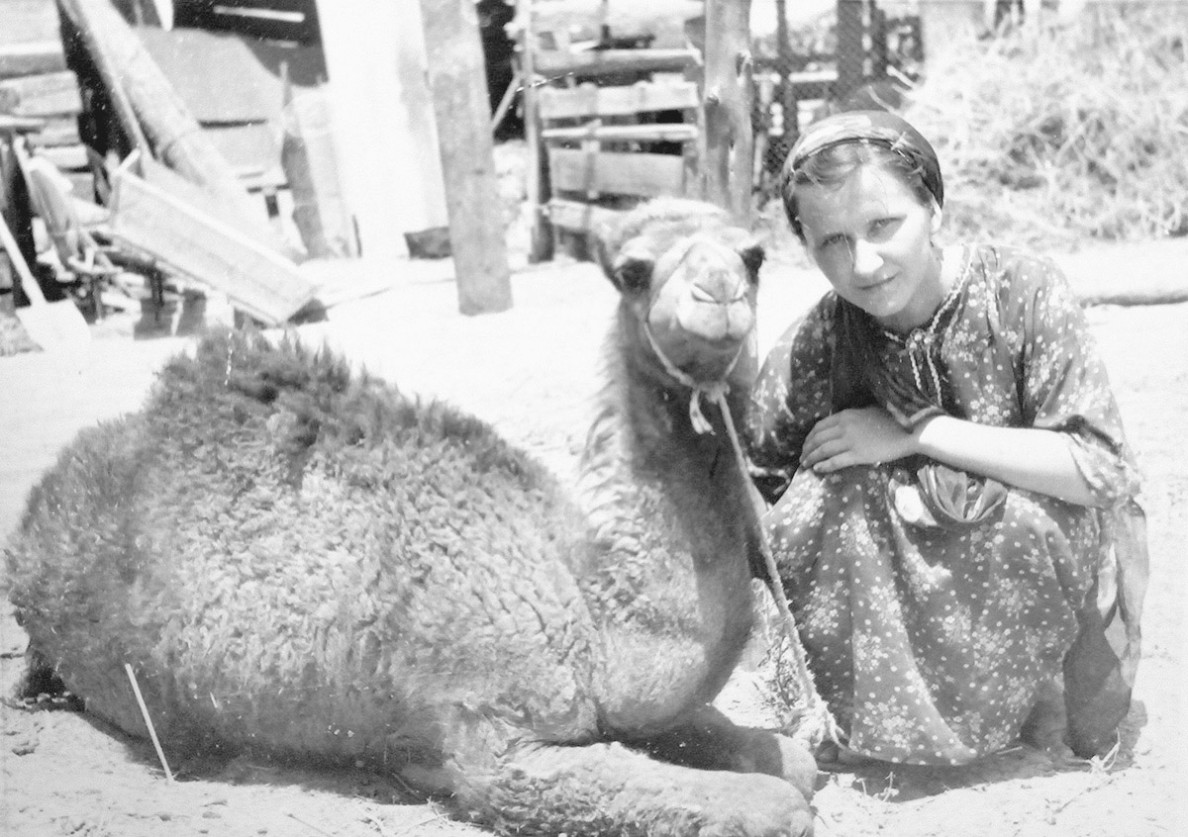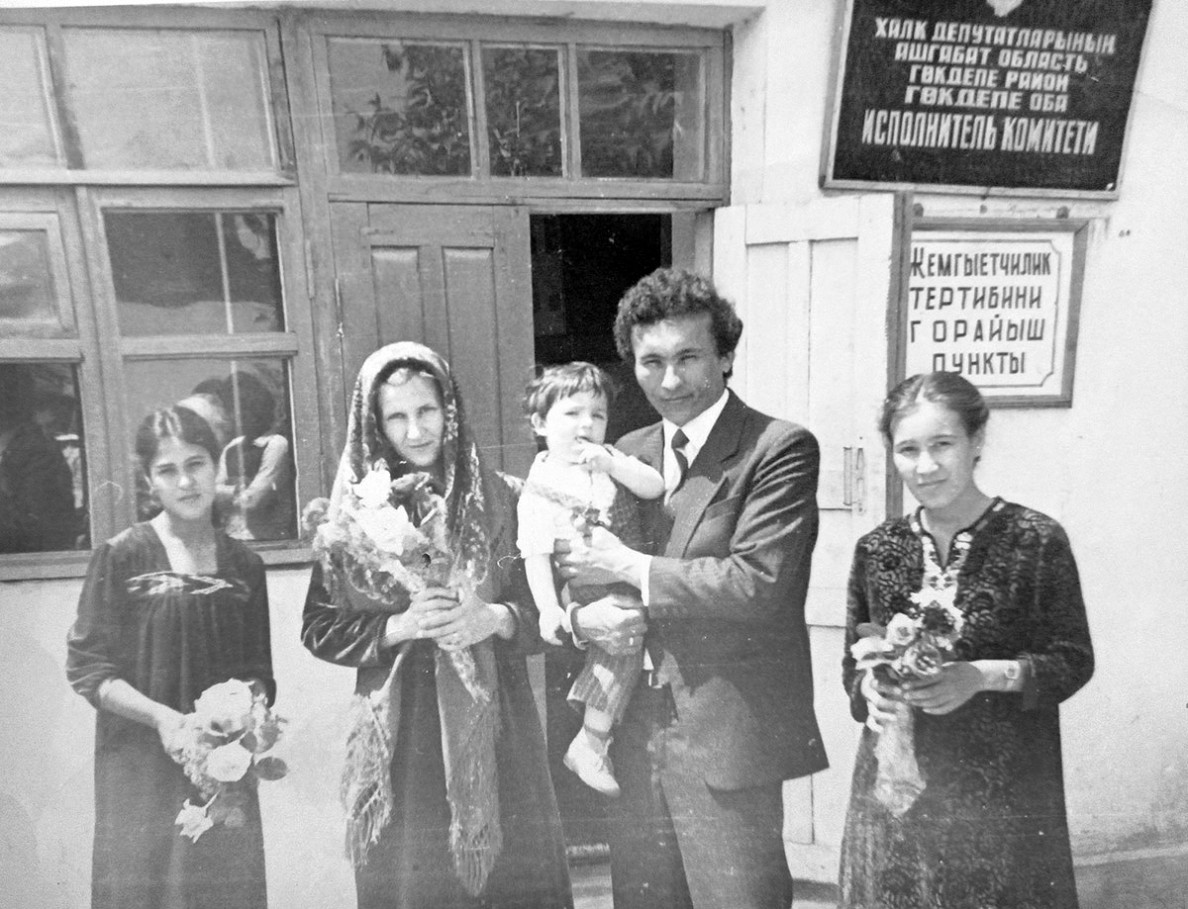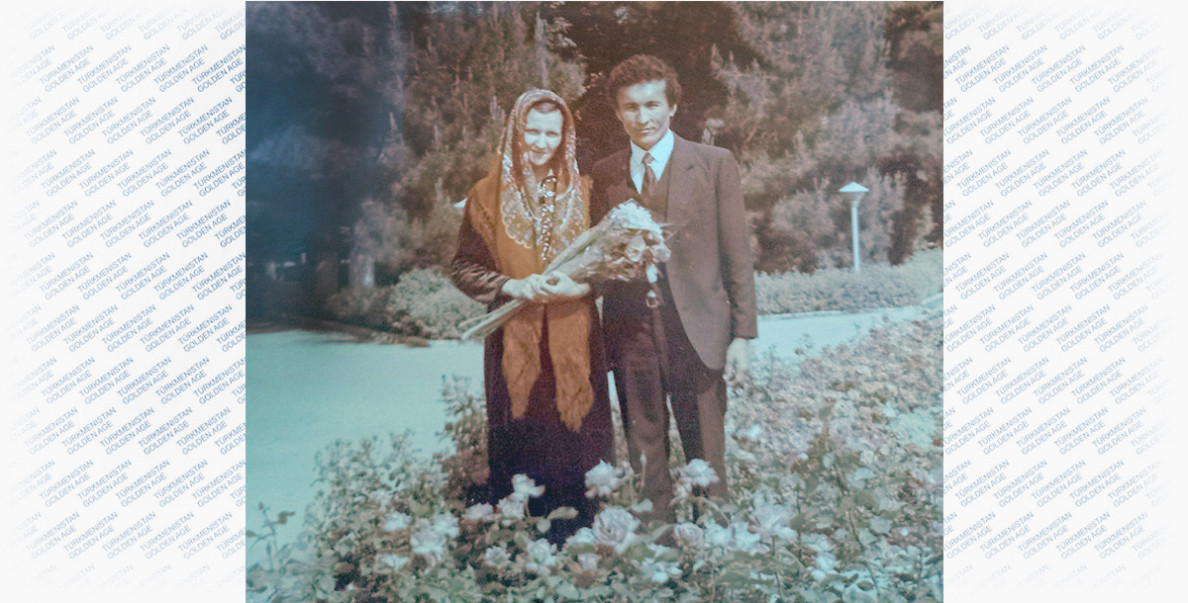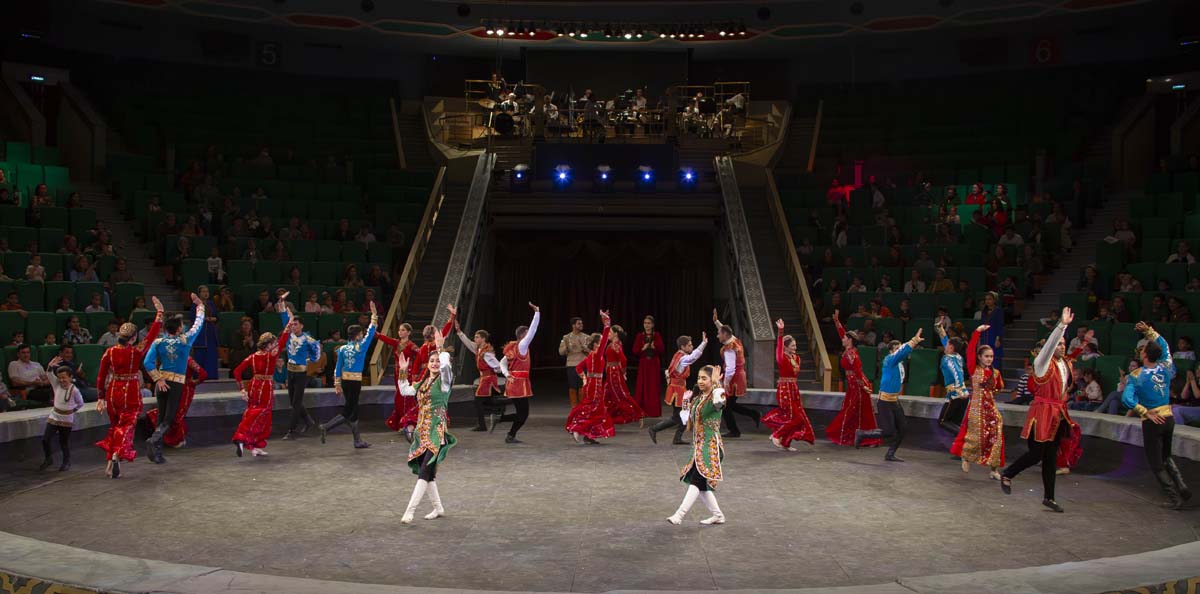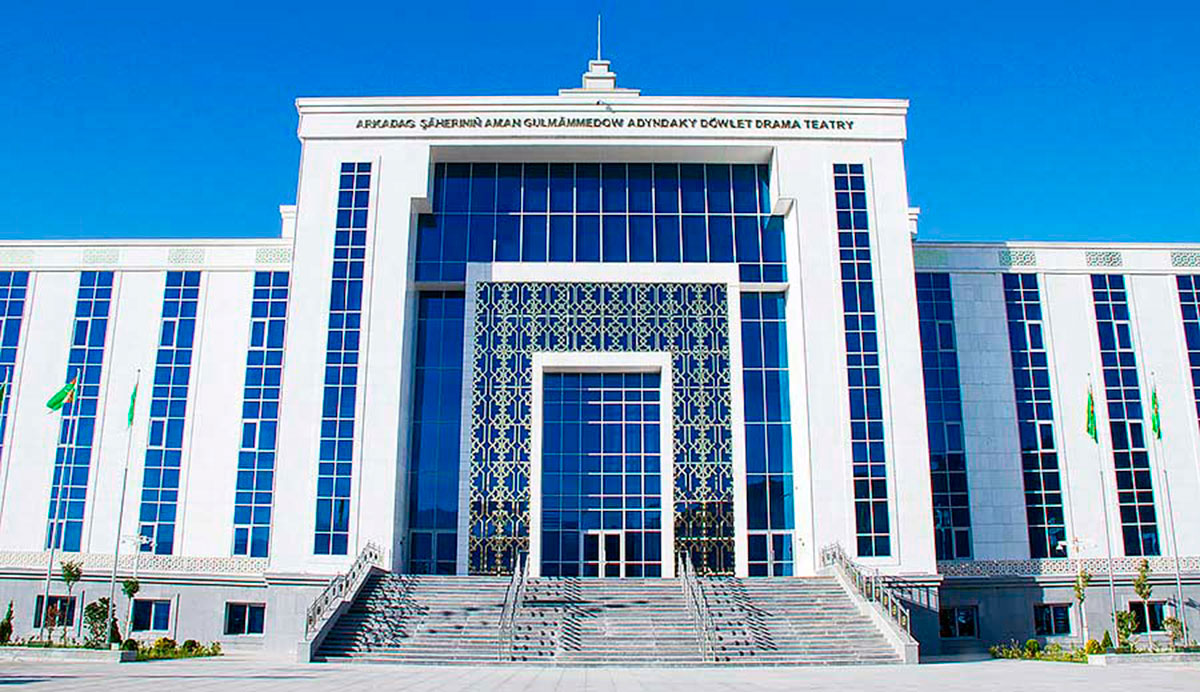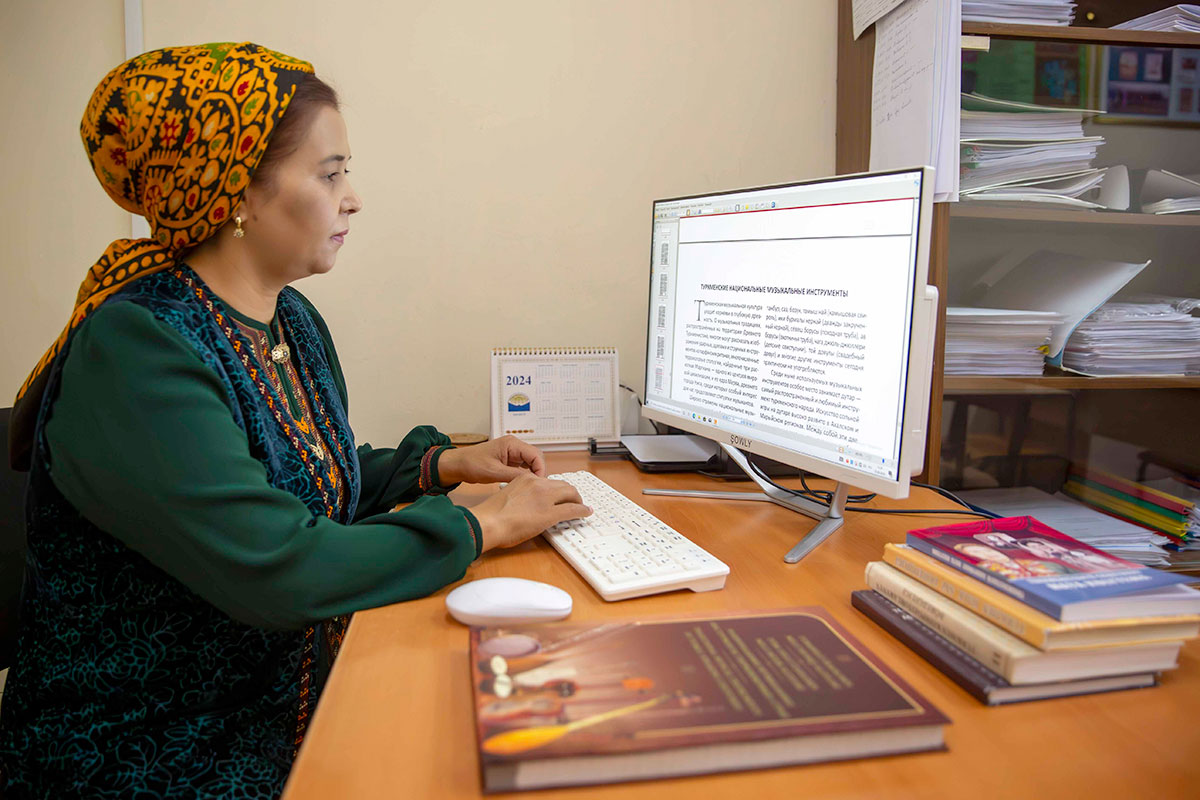Captivating and alluring sounds of the gijak (a spike fiddle), effectively accompanying the unique ‘voice’ of the dutar and the solo singing of a bagshi fill the Cultural and Business Center of the oil and gas complex. The Ensemble of National Instruments is led by People’s Artist of Turkmenistan, gijak player Bayrammurad Soyunov.
The musician, who became fascinated by folk music as a child, is able to play the dutar, gargy-tuiduk (a long reed flute), gopuz (a jaw harp), and tuiduk (an end-blown flute). But as he confesses himself lyrical tunes of the gijak have a special place in his heart. We paid the famous musician a visit and learned many interesting facts about his creative work and life.
Bayrammurad started out on his stage career in his native Geoktepe where his grandfather and father played folk instruments as well. As the performer says himself he inherited his musical ability. After finishing school, he began to work at a rural culture club and became in charge of it shortly thereafter. It was there that Bayrammurad first met his wife, Reda.
… The young woman came to Turkmenistan from the far-off Lithuanian city of Švėkšna. As a schoolgirl Reda had visited a health resort in Bayramaly, Mary velayat. She entered Vilnius University, Lithuania’s oldest institution, and after two years of study she decided to continue her education in Ashgabat as a transfer student. The reason for the decision was the climate in the Central Asian republic was good for her health.
They got married and started an international family in 1985. The newly-wed couple lived in Turkmenistan and often went on visits to Lithuania.
Reda Soyunova (née Andriuškevičius) worked as a Russian Language and Literature teacher at a Turkmen school. Adapting to the local way of life and traditions of her adopted country, she was eager to learn to do things every Turkmen woman could do. Once, Reda even decided to bake traditional chorek bread for her guests. But her first bread did not turn out well. It was Reda’s mother-in-law who shared the tricks of national bread-making with her.
– The country of sands and tall poplars, this was my impression of Turkmenistan, Reda tells. – We had traveled here by train with my mother and the journey had taken a few days. I remember I even made friends with schoolgirls from Bayramaly and we exchanged our handwritten correspondence. In Lithuania, it was common to keep gardens and when I started to live in Geoktepe I had one, too. I knew very few Turkmen words, but I practiced speaking to my neighbors and students at school and eventually learned to speak the local dialect. When I put on a Turkmen dress for the first time, all my fellow villagers came to look at me.
The musician refers to their marriage as a match made in heaven.
– We are kindred souls and two halves of the same whole, Bayrammurad says. - We got married and some time later we had two children. I studied at cultural enlightenment (kultprosvet) college by correspondence and graduated from it. I visited and performed in many cities and countries. People’s Artist of Turkmenistan Ata Ablyev was my mentor for the gijak. For a long time I worked with the Ensemble of Folk Instruments of the State Committee for Radio and Television of Turkmenistan led by Chary Tachmammedov. In 2007 I became an artistic director of the Ensemble of Folk Instruments of the oil and gas complex’ Cultural Center.
The Ensemble regularly gives concerts and takes part in TV shows, maintaining and promoting the Turkmen nation’s rich musical traditions.
People’s Artist of Turkmenistan, recipient of the Türkmeniň Altyn Asyry Award of the President of Turkmenistan Bayrammurad Soyunov has devoted his life to his family and music. According to the musician, the right guiding principles and staying true to one’s calling can help one to succeed in the chosen path.
Svetlana CHIRTSOVA




